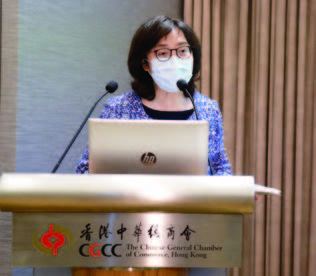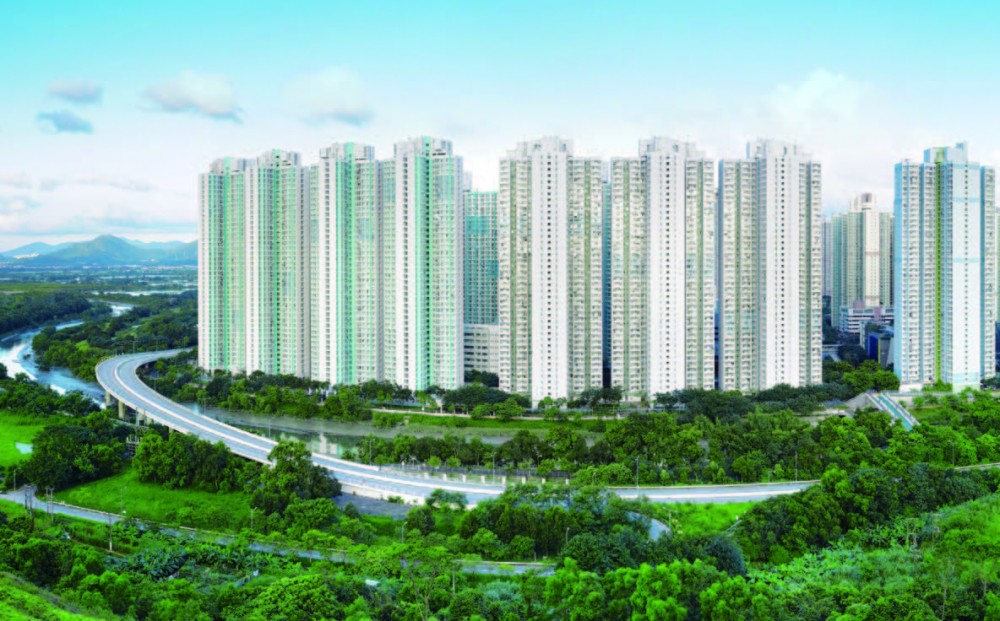Increasing land supply is a top priority for the current-term Government, and the Development Bureau (DEVB) aims to enhance land development work in terms of quantity, speed, efficiency and quality, so as to meet the target early with greater effectiveness.

Bernadette Linn, Secretary for Development, revealed that the DEVB will make greater efforts to expedite the established policies and plans, as well as to tap more land sources and push ahead with the renewal of old districts. She hopes to reach the goals by enhancing land development work in terms of quantity, speed, efficiency and quality.
Easing tight land supply and streamlining processes
 For “enhancing quantity”, the Government wants to reverse the situation of stringent land supply of the past through large-scale and continuous land creation. According to Linn, the supply of developable land will reach 3,280 hectares in the coming decade. She said that new development areas (NDAs) are the key sources of supply for the decade, with Tung Chung New Town Extension being the chief source in the early years, and to be succeeded by Kwu Tung North, Fanling North, Hung Shui Kiu/Ha Tsuen, Yuen Long South and San Tin/Lok Ma Chau NDAs in the Northern Metropolis. In the medium to longer term, there will also be supply of developable land from reclamation for the Kau Yi Chau artificial islands and Tseung Kwan O Area 137. To illustrate the Government’s efforts in land creation, the DEVB has formulated a forecast for 10-year supply of developable land, which the public can view on its website. Such information will be updated annually.
For “enhancing quantity”, the Government wants to reverse the situation of stringent land supply of the past through large-scale and continuous land creation. According to Linn, the supply of developable land will reach 3,280 hectares in the coming decade. She said that new development areas (NDAs) are the key sources of supply for the decade, with Tung Chung New Town Extension being the chief source in the early years, and to be succeeded by Kwu Tung North, Fanling North, Hung Shui Kiu/Ha Tsuen, Yuen Long South and San Tin/Lok Ma Chau NDAs in the Northern Metropolis. In the medium to longer term, there will also be supply of developable land from reclamation for the Kau Yi Chau artificial islands and Tseung Kwan O Area 137. To illustrate the Government’s efforts in land creation, the DEVB has formulated a forecast for 10-year supply of developable land, which the public can view on its website. Such information will be updated annually.
As for “enhancing speed”, Linn said that the DEVB is currently reviewing the development-related procedures set out in individual legislation, with the goal of introducing relevant draft amendment bills by the end of this year. This will be followed by further streamlining the administrative procedures, with the goal of presenting specific proposals from the middle of next year onwards. In addition, she said that the Buildings Department will establish “dedicated processing units” to expedite the approval of building plans and put forward an implementation plan on the extension of standard rates for charging land premium by mid-2023. Separately, with a lot of land leases expiring from 2025 onwards to 2047, the arrangement for land lease extension will be more streamlined, according to Linn.
New method for higher efficiency and new trail for beautiful scenery
Adopting the Modular Integrated Construction (MiC) method is an initiative for “enhancing efficiency”. Linn said that the MiC method can effectively reduce construction time, manpower, waste and noise. Going forward, the Government will establish a cross-departmental steering committee and the DEVB will set up a dedicated team to promote wider adoption of this construction method. In addition, she said that the DEVB intends to further promote the use of Building Information Modelling (BIM) and will devise a roadmap next year on the use of BIM by the industry and departments in preparing and approving building plans.
“Enhancing quality” mainly involves urban renewal and renovation of buildings, as well as addressing the problem of ageing buildings. Linn said that the DEVB intends to facilitate renewal of urban districts through measures such as lowering the compulsory sale application thresholds and streamlining the legal procedures for compulsory sale. In addition, the DEVB will fully support the work of the Urban Renewal Authority (URA) by raising the borrowing limit of the latter. As for leisure facilities, Linn said that the Government is planning to connect the waterfront promenades on the northern shore of Hong Kong Island with a number of existing waterfront and countryside walking trails in the Southern District, building a Round-the-Island Trail with a length of about 60 kilometres. Works are set to commence from next year onwards.
Linn hopes that through the above measures, the land development work will not only solve the housing problem for the public, but will also strengthen the impetus for growth for Hong Kong and improve the quality of life for the public.




